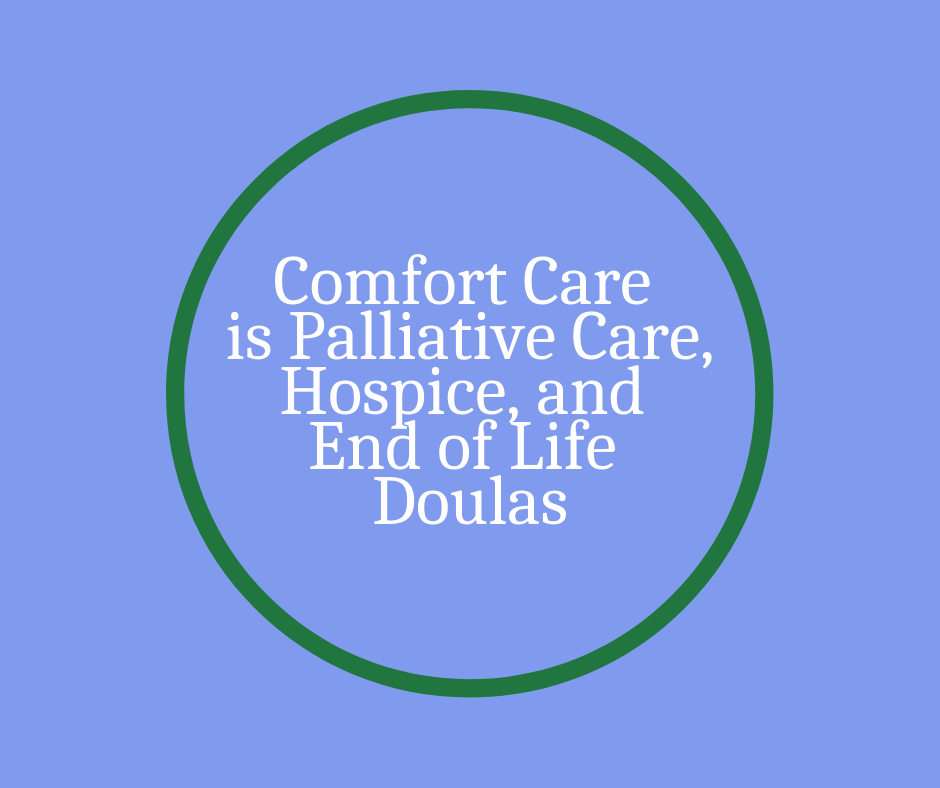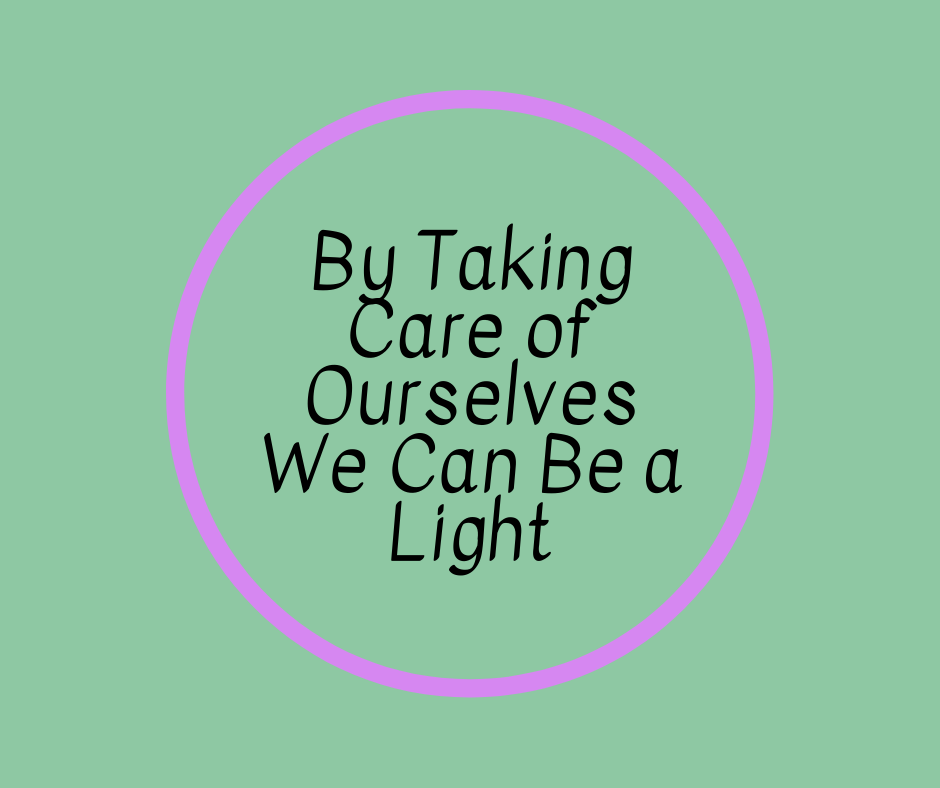I was talking with someone yesterday about labor, labor to get into this world and labor to leave it, the similarities and the differences, when we leave “home” and when we go “home”—-all labor, all hard work.
When I was a nurse’s aide in the ’50s I worked on the labor and delivery floor of a small hospital. They wheeled a moaning, crying, sometimes screaming woman into the labor room and although they didn’t let me, a 16 year old, into the room I could hear the sounds, then the silence, then a baby crying. The woman was then wheeled out of the labor/delivery room, woke up, remembered nothing, and enjoyed her baby.
I had my own children in the '60s. With the first two I was uncomfortable, then was put to “sleep,” woke up with a new baby and remembered nothing. When my last child was ready to be born I decided I had slept through the first two and I would “watch” this one, would participate in the natural way babies were meant to be born. I did have that experience and it hurt, hurt a lot. It was hard work, my belly is going to explode if I don’t get this kid out, NOW, kind of work.
That is the labor to get into this world. The labor to leave it is similar. There is discomfort as the body shuts down before that final “push.” There is a process.
Labor actually starts weeks before we are “birthed” into another world. Instead of hours of labor to get into this world it is often weeks of labor to leave it. When a woman “pushes” to deliver us into this world it often takes minutes. To leave this world the final “push” can take hours.
What about pain? It looks painful because it is hard work to disconnect, to “push” free of this vehicle. And just like getting into the world some of us arrive more gently than others. Like doctors giving a woman in the '50s and '60s “twilight sleep” (which allows them to not remember what happened, to not remember the pain, the struggle) nature gives us a natural “twilight sleep” to leave this world.
Naturally, as we withdraw over the days to hours before death, we begin distancing ourselves, a going inward, into a space where there is only room for one. From this inner space we hear what is occurring around us as if from afar, from a distance. As the veil between the worlds thins, this physical world with its sensations and sounds recedes and the other world becomes brighter and more welcoming.
Something More... about The "Labor" To Enter This World, And The "Labor" To Leave
To follow the process of labor when a loved one is dying Gone From My Sight: The Dying Experience is your resource booklet. In the final days, hours, minutes, seconds before death The Eleventh Hour will guide you with what to do for your loved one. You may get those booklets here: www.bkbooks.com








7 comments
barbara
Hi Joann, there are so many similarities in our labor to arrive and our labor to leave this world. Thank you for your comment. Blessings! Barbara
Hi Joann, there are so many similarities in our labor to arrive and our labor to leave this world. Thank you for your comment. Blessings! Barbara
Joann Wang
My father recently died. I told my husband that, strangely, watching my father’s final breaths actually reminded me of when our child was born but I had a hard time explaining why. Thank you for this description.
My father recently died. I told my husband that, strangely, watching my father’s final breaths actually reminded me of when our child was born but I had a hard time explaining why. Thank you for this description.
Marlena Hamm
Wow what a beautiful way to put this to families. I work in an IPU and all too often, the families come in and try to wake the patient up, often in ways that are pretty aggressive for a patient who is actively dying. This often causes the patient to become restless, agitated, or exacerbates symptoms we have been working hard to control. If I use this analogy, this may help them to see why maintaining calm is better for the patient. Thank you!
Wow what a beautiful way to put this to families. I work in an IPU and all too often, the families come in and try to wake the patient up, often in ways that are pretty aggressive for a patient who is actively dying. This often causes the patient to become restless, agitated, or exacerbates symptoms we have been working hard to control. If I use this analogy, this may help them to see why maintaining calm is better for the patient. Thank you!
barbara karnes
Hi Robin, thank you for your comments about labor. Rather than "sparing “ the family from seeing the labor I think if we teach them about what is happening and the why’s they can be part of the final goodbye. Being with a loved one as they leave this world can be a profound, sacred experience IF they have the support, guidance and understanding of what is happening. Blessings! Barbara
Hi Robin, thank you for your comments about labor. Rather than "sparing “ the family from seeing the labor I think if we teach them about what is happening and the why’s they can be part of the final goodbye. Being with a loved one as they leave this world can be a profound, sacred experience IF they have the support, guidance and understanding of what is happening. Blessings! Barbara
Angie Duet
I wish people could accept this as a normal human process. I know situations vary but generally, when people live a full life, this should be accepted as “normal”. It is actually a beautiful experience, when done “well”. thanks for putting it into words.
angie
I wish people could accept this as a normal human process. I know situations vary but generally, when people live a full life, this should be accepted as “normal”. It is actually a beautiful experience, when done “well”. thanks for putting it into words.
angie
Robin Riddle
Yes, we have noticed in our brain donation work that dying seems like “hard work” (or labor) for some We so wish we could spare families from witnessing that but it can be a period of joy for some.
Yes, we have noticed in our brain donation work that dying seems like “hard work” (or labor) for some We so wish we could spare families from witnessing that but it can be a period of joy for some.
Tokie Shelton
It is true. Laboring to be born is tough and laboring to exit this world is tough. I have comforted many that are trying to exit this world and sharing the love and compassion of what is happening helps the family. The last miracle we have waiting is our Glorified bodies that will feel no pain and no sadness. This is a special journey in all respects. Your books have allowed me insight to comfort others and I am thankful for your perspectives and education.
It is true. Laboring to be born is tough and laboring to exit this world is tough. I have comforted many that are trying to exit this world and sharing the love and compassion of what is happening helps the family. The last miracle we have waiting is our Glorified bodies that will feel no pain and no sadness. This is a special journey in all respects. Your books have allowed me insight to comfort others and I am thankful for your perspectives and education.